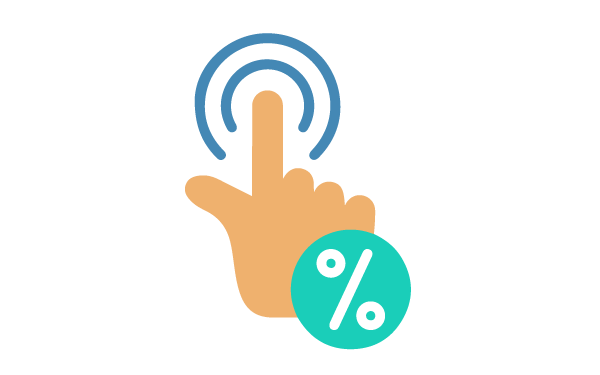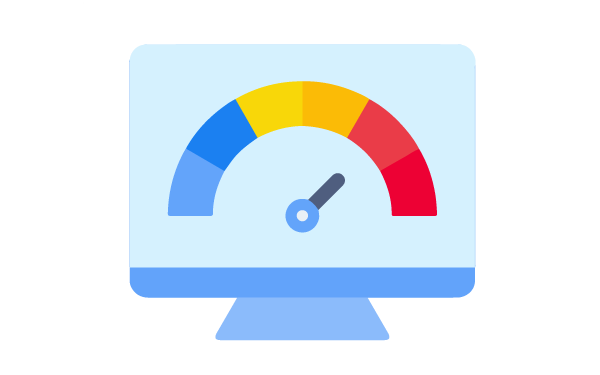Top 10 Social Media Metrics Every Marketer Must Track
Social media moves fast: trends are constantly changing, new platforms are always emerging, and the turnover has never been quicker. Tracking the right metrics is key to understanding your audience and staying ahead of the game. Here are ten vital social media metrics every marketer should monitor to ensure success:
1. Engagement Metrics
Engagement metrics, including likes, shares, and comments, provide insights into how your audience is interacting with your content. High engagement typically indicates that your content resonates with your audience. These metrics are crucial for understanding the quality and relevance of your posts.
Why it matters: Engagement metrics help you gauge audience interest and identify what type of content encourages interaction, allowing you to tailor your strategies accordingly.
2. Reach and Impressions
Reach refers to the total number of unique users who see your content, while impressions count the total number of times your content is displayed, regardless of whether it was clicked or not. These metrics are essential for assessing your content’s visibility.
Why it matters: By monitoring reach and impressions, you can determine the effectiveness of your content distribution and whether it’s reaching a broad or targeted audience.
3. Follower Growth
Follower growth measures the rate at which your audience is expanding over time. A steady increase in followers indicates that your brand is attracting new potential customers.
Why it matters: Monitoring follower growth helps you understand how well your brand is growing its online presence and whether your content and campaigns are attracting new audiences.
4. Click-Through Rate (CTR)
CTR measures how often people click on the links within your social media posts. It’s calculated by dividing the number of clicks by the number of impressions.
Why it matters: A high CTR indicates that your content is compelling and encourages your audience to take action. It’s a key indicator of content effectiveness and can inform future content creation.
5. Conversion Rates
Conversion rates measure the percentage of users who take a desired action after clicking through from your social media posts, such as making a purchase, signing up for a newsletter, or filling out a contact form.
Why it matters: Understanding conversion rates helps you assess the effectiveness of your social media campaigns in driving meaningful actions that contribute to your business goals.
6. Return on Investment (ROI)
ROI measures the revenue generated from your social media efforts compared to the costs involved. It’s a critical metric for understanding the financial impact of your social media activities.
Why it matters: Measuring ROI allows you to justify your social media budget and optimize your spending to maximize returns.
7. Brand Mentions and Sentiment Analysis
Brand mentions track how often your brand is being discussed on social media, while sentiment analysis assesses the tone of these mentions, whether positive, negative, or neutral.
Why it matters: Monitoring brand mentions and sentiment helps you understand public perception of your brand and allows you to respond to feedback or potential PR issues in real-time.
8. Performance of Different Content Types
Analyzing the performance of various content types—such as videos, images, and blog posts—helps you identify which formats resonate most with your audience.
Why it matters: By understanding which types of content perform best, you can optimize your content strategy to focus on the formats that drive the most engagement and results.
9. Response Times to Customer Inquiries
Response time measures how quickly your team responds to customer inquiries and comments on social media. Fast response times can significantly improve customer satisfaction and brand perception.
Why it matters: Monitoring response times helps ensure that your brand is responsive and attentive, which can enhance customer relationships and loyalty.
10. Ad Performance and Budget Efficiency
Tracking the performance of your social media ads and the efficiency of your ad spend is crucial for optimizing your campaigns. Key metrics include cost per click (CPC), cost per thousand impressions (CPM), and overall ad ROI.
Why it matters: Understanding ad performance and budget efficiency helps you allocate resources effectively and ensure that your advertising efforts are delivering the best possible return.
At HTC, our social media management and marketing services take care of every step, so you don’t have to! From content creation to reporting, our comprehensive programs allow you to focus on your business while we drive engagement, leads, and brand loyalty.
Download our 17-Piece Digital Marketing Toolkit for more information on our social media management and marketing services.









